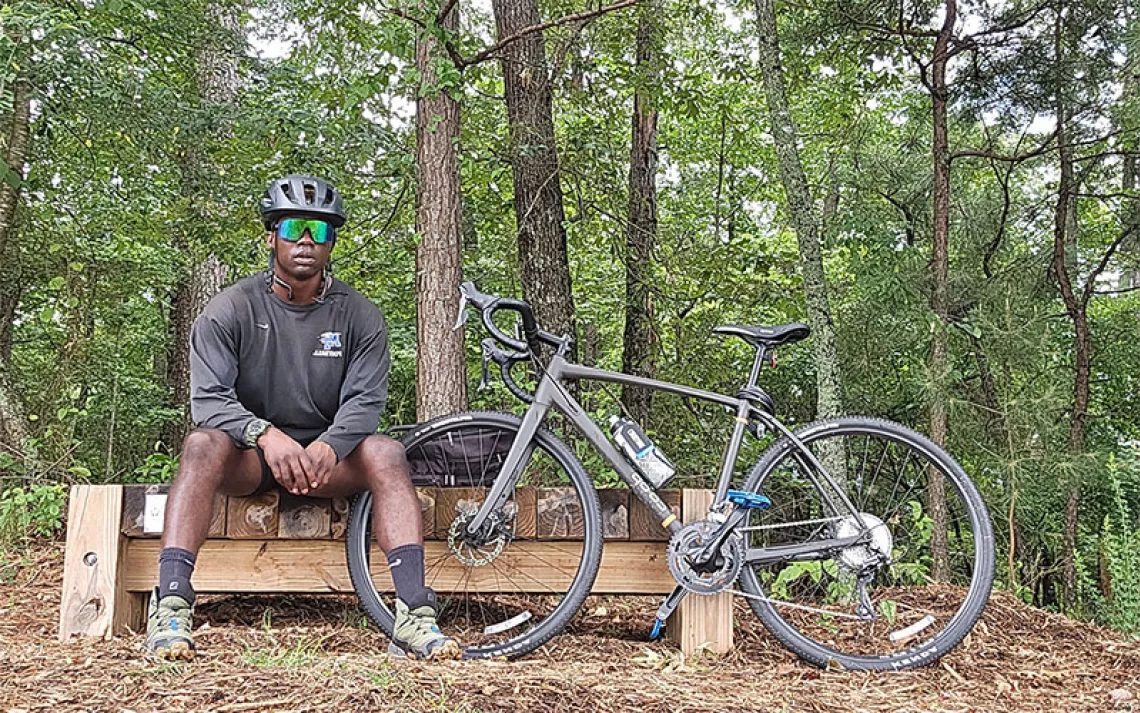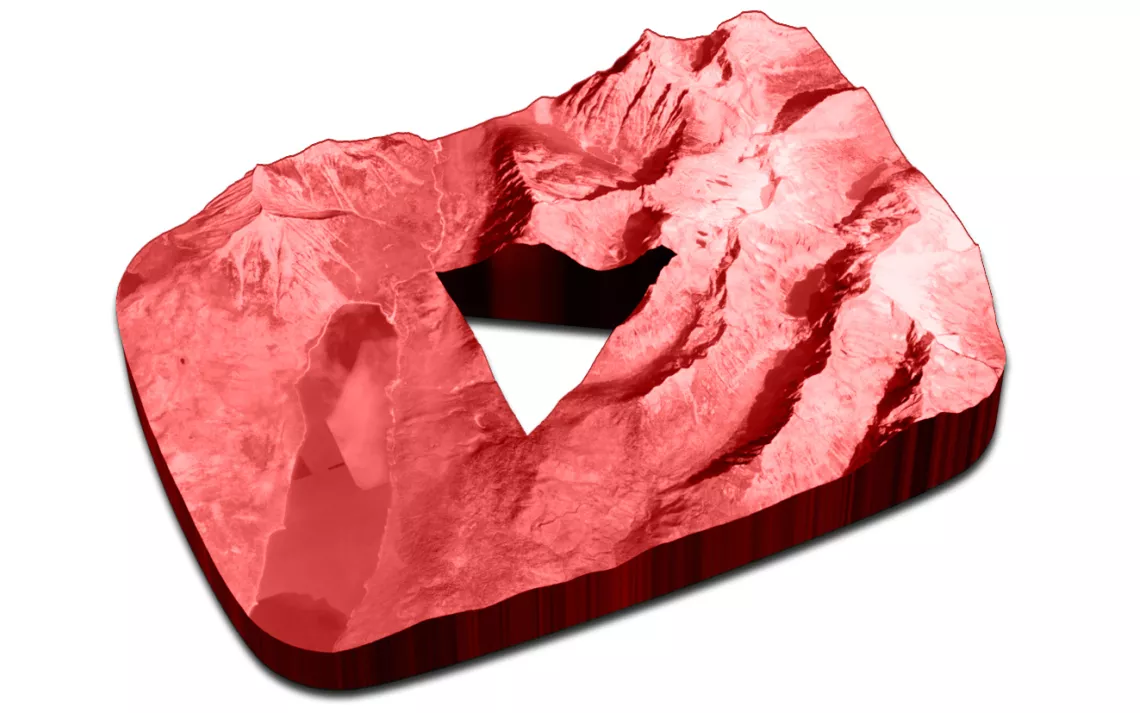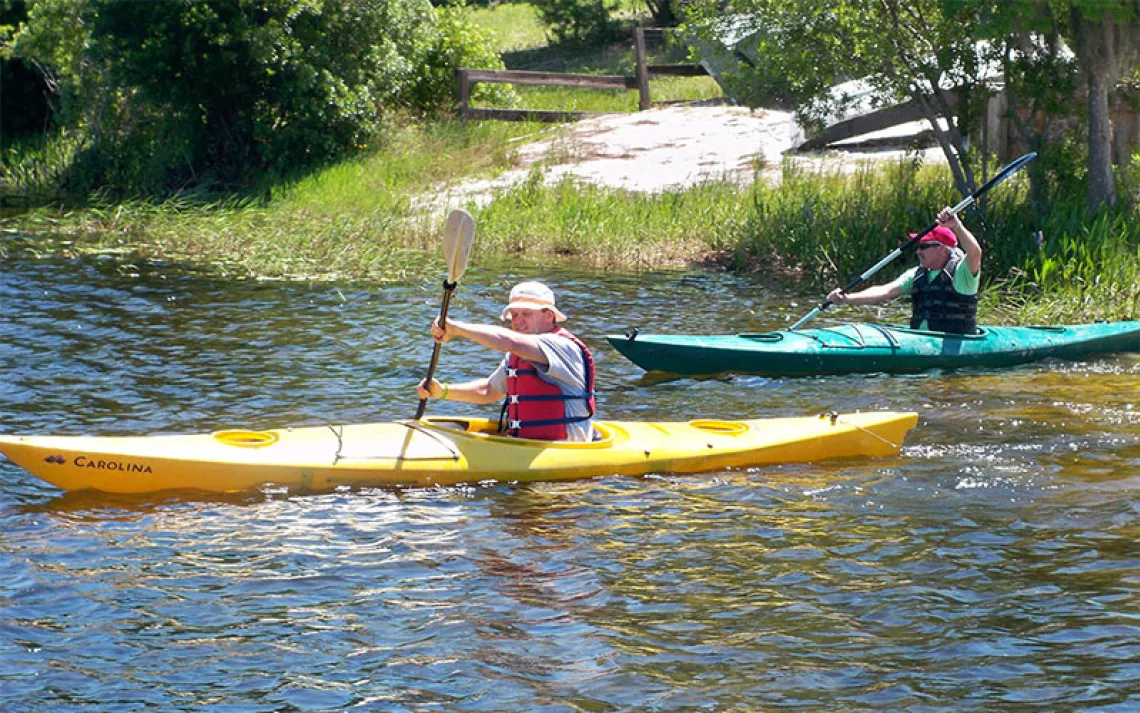Awe Is a Skill You Can Cultivate
Just open your eyes to the natural world around you

Photo by Swen_Stroop/iStock
On Christmas Eve 1968, earthlings tuned in, mesmerized, as Apollo 8 crew members beamed their words and pictures back to the rest of humanity. “The vast loneliness up here of the moon is awe-inspiring,” Jim Lovell remarked during the live broadcast of the first manned mission to the moon, “and it makes you realize just what you have back there on Earth.”
Astronauts who have viewed our planet from space often describe a cognitive shift that transforms their perspective—a phenomenon author Frank White refers to as the “overview effect.” In addition to evoking an immediate emotional response, it seems to have a longer-term impact as well. A number of former astronauts have gone on to pursue environmental and humanitarian efforts, citing this mental shift as the catalyst, explains Harvard doctoral candidate Megan Powell Cuzzolino, who studies awe in the context of scientific learning and discovery.
Space travel isn’t a prerequisite for experiencing awe, however. The iconic “Earthrise” photo taken during this mission 50 years ago created what might be called a mini-overview effect on the folks back home. The image is widely cited as a turning point that “birthed the environmental movement of the mid-20th century,” Cuzzolino says.

Sign up to receive Sierra News & Views
Get articles like this one sent directly to your inbox weekly.
With this action you affirm you want to receive Sierra Club communications and may vote on policy designated by the Sierra Club Board.
Part of awe’s power, after all, is its ability to remind us of our place within a larger society, world, and even universe. From a psychological standpoint, feeling small is often tied to powerlessness or a loss of control, but in the context of awe we tend to feel it in a positive way. Research has suggested that this awe-inspired diminishment of the self can lead to an increase in prosocial behavior, for example, sparking greater generosity and kinder behavior toward others. And findings published earlier this year indicate it can offer a path to greater humility.
For now, the science centered on this emotion is in its infancy, still building upon the foundation laid by Dacher Keltner and Jonathan Haidt's groundbreaking theoretical analysis in 2003 asserting that awe involves a “perceived vastness” that challenges our understanding of the world. It's the feeling that what you’re perceiving is truly extraordinary—so far out of the ordinary that your mind doesn’t quite know what to do with it.
Some experiences, like space travel or a trip to the Grand Canyon, might be almost universal in their ability to evoke this complex sensation straddling the line between fear and amazement. But for the most part, awe is highly personal. A jaw-dropping occurrence for one could be just ho-hum for another. “What blows your mind depends on what was in your mind to begin with,” says Michelle “Lani” Shiota, a social psychologist at Arizona State University. Because an awe-eliciting experience commands our attention in such a powerful way, it allows us the chance to take a step back from our day-to-day worries and problems. “It offers our minds a break, our emotions a break, and our bodies a break,” she adds, “and we really need that.”
You can learn how to cultivate this emotion on a regular basis and reap the benefits when it arrives. Watching children enjoy the outdoors can help teach you. Because their worldview isn’t as fully formed, kids make fewer assumptions than adults and wind up "oohing" and "aahing" more as a result. Look where they’re looking, Shiota suggests. It might just nudge you to appreciate something familiar in a whole new way.
We can also remember to take advantage of Mother Nature’s breath-taking beauty when it's right in front of us. How often do you spend an entire day at the beach, for example, and fail to truly appreciate the grandeur of the ocean? Don't miss that chance. You can work to expand the scope of your perception by thinking about how far that body of water goes or pondering the vast activity taking place beneath its surface.
Try to incorporate a variety of senses, Shiota adds. During your next hike, listen to the birds sing or eavesdrop on the sweet whispers of the wind. Inhale the perfume of pine or breathe in the scent of snowfall. Then try to fuse these different pieces of information together to create a larger picture of the world and your place in it.
Awe-inspiring experiences are commonly thought of as luxuries to be enjoyed when we find the time or money, explains Jennifer Stellar, a psychologist at the University of Toronto, but we really ought to be folding them into our daily lives rather than thinking of them as icing on the cake. So take the time to immerse yourself in experiences that spark that sense of wonder for you. Sure, a trip to Niagara Falls or the Great Smoky Mountains may lead to profound feelings, but don’t overlook the countless opportunities that exist within your everyday environment as well—that majestic tree you blow by on your way to work, or the starlit sky you ignore while dragging the garbage can to the curb. Slow down, pay attention to your surroundings, and allow the splendor of the cosmos to stop you in your tracks. In other words, have an awe(some) adventure.
 The Magazine of The Sierra Club
The Magazine of The Sierra Club



